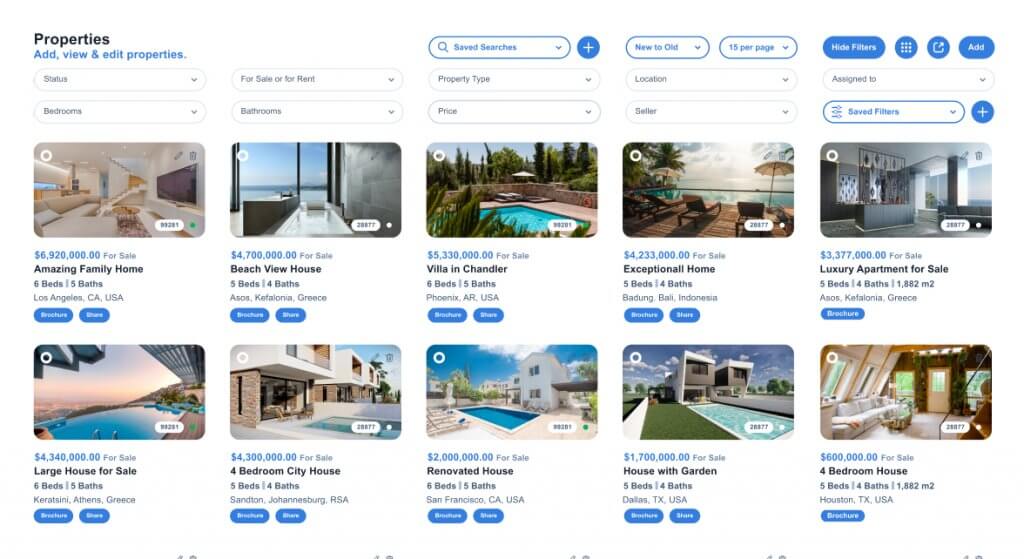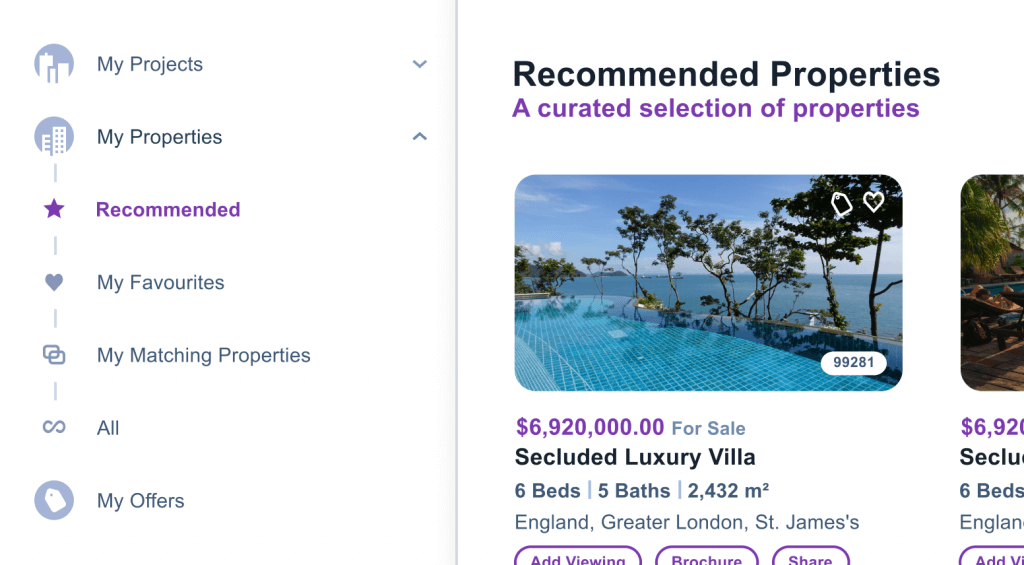In todays digital age, having a real estate website is crucial for your business. A well-designed and optimized real estate website can help you attract potential clients, showcase your properties, and ultimately increase your revenue. However, simply having a website is not enough. To stand out in the crowded real estate market, your website must include certain elements that appeal to your target audience. In this blog, we’ll discuss the eleven essential elements that your real estate website must include in 2023.
1. Mobile-friendly design
In 2023, more than 70% of internet users are expected to access the internet through their mobile devices. Therefore, it’s essential to ensure that your real estate website has a mobile-friendly design. A responsive design ensures that your website automatically adjusts to fit different screen sizes. This allows for easy navigation on any device.
2. High-quality visuals
Real estate is a visual industry, and your website should reflect that. High-quality visuals, such as professional photos and videos of your properties, can help attract potential clients and set your business apart from the competition.
According to a study by the National Association of Realtors, 87% of buyers found photos to be the most important feature on a real estate website.
3. Property search functionality
Your website must have a robust property search functionality that allows visitors to search for properties based on their preferences. Furthermore, the search function should be easy to use and filter results by location, price range, property type, and other relevant factors.
4. Virtual tours
In the post-pandemic world, virtual tours have become an essential tool for real estate agents. Virtual tours allow potential buyers to tour properties from the comfort of their homes. Incorporating virtual tours into your website can help you reach a wider audience and stand out from your competitors.
5. Customer testimonials
Including customer testimonials on your website can help build trust with potential clients. Positive testimonials from satisfied clients can convince visitors that your business is trustworthy and reliable.
6. Contact information
Your website should include clear and prominent contact information, including your phone number, email address, and physical address. What’s more, this information should be easily accessible from any page on your website.
7. Blog
Maintaining an active blog on your website can help establish your business as a thought leader in the real estate industry. Your blog can also provide valuable information and insights to potential clients, helping to build trust and establish credibility.
8. Social media integration
Integrating social media into your real estate website can help you reach a wider audience and increase engagement. Additionally, including social media buttons that link to your business’s social media profiles can make it easy for visitors to follow you and stay up-to-date on your latest news and listings.
9. Advanced analytics
Having advanced analytics tools installed on your website can provide valuable insights into how visitors interact with your site. You can track metrics such as bounce rates, time on page, and conversion rates to gain a better understanding of how to improve your website’s performance. This data can help you make informed decisions about website design, content, and marketing strategies to better attract and convert potential clients.
10. Lead capture forms
Your real estate website must include lead capture forms that allow visitors to provide their contact information in exchange for valuable content. Things like a free home valuation or a guide to the home-buying process are good to include. These forms can help you collect leads and build your email list, which can ultimately lead to more clients and sales.
11. Built-in CRM
Finally, a built-in CRM (Customer Relationship Management) system is an essential element for your real estate website. With a CRM integrated into your website, you can keep track of your leads, automate follow-up emails, and manage your pipeline. This can help you save time and improve your overall efficiency. Additionally, a CRM can provide you with valuable insights into your customers’ behavior. This helps you identify trends and make informed decisions about your marketing strategies. With a built-in CRM, you can streamline your lead generation and management process, making it easier to convert potential clients into sales.
Conclusion
In 2023, a well-designed and optimized real estate website is essential for success in the industry. If you’re looking for a comprehensive solution to build your real estate website with all the essential elements mentioned above, Qobrix is a great option.
Qobrix is a powerful real estate CRM and website platform that includes all the tools to create a high-performing website. Qobrix also includes MLS/IDX interfaces with its CRM, which means you can display listings from the MLS directly on your website. This provides potential clients with up-to-date information about available properties. This integration can help generate leads and increase online visibility for your business. Additionally, Qobrix offers a mobile-friendly design and social media integration, making it easy to showcase your properties and reach a wider audience. With its user-friendly interface and robust features, Qobrix can help you build a website that attracts potential clients, establishes your business as a thought leader, and ultimately drives more sales.
Your website should include elements such as a mobile-friendly design and high-quality visuals. Robust property search functionality, customer testimonials, and clear contact information. Social media integration and advanced analytics are crucial. By incorporating these elements into your website, you can attract potential clients, showcase your properties, and ultimately increase your revenue.




